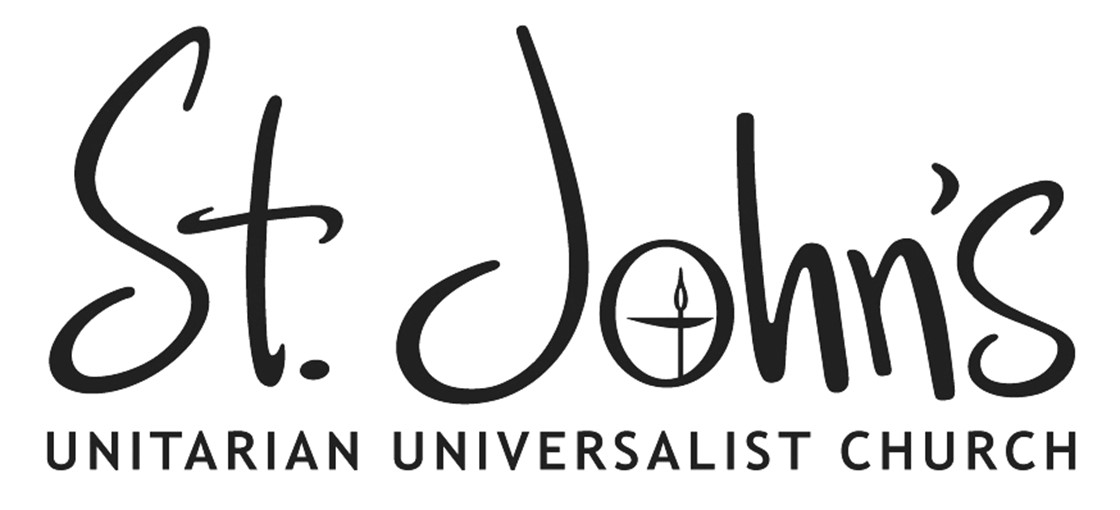Dear Church,
I would like to invite you into a new experience with me. The next three sermons will be on a related theme. Sometimes we need to be very intentional in telling stories about racism here.
Let’s begin with song.
You may have noticed the song “Lift Every Voice and Sing” taking a new prominence. Sometimes called the unofficial Black National Anthem, “Lift Every Voice and Sing” got a lot of play when President Obama was inaugurated and has recently been sung before NFL football games. Most significantly, U.S. Rep. James Clyburn has proposed making the song America’s national hymn. In our grey hymnal, it is number 149 and we have sung it often at St. John’s.
You can listen to a beautiful rendition here: Lift Every Voice
When I was thinking about the next three Sundays, I looked to this hymn with some trepidation. I want to do it, but do it right. What does “right” mean? It means with respect for the history and honor for a tradition that has brought it forward. Right means taking seriously the ways in which we are purveyors of the chastening rod and the ways we are responsible to support the hope of the present. It means engaging the struggle with humility (because we will mess up) and faith (because a better day will come).
Music, like religion, is a powerful force. We are more likely to use that power ethically when we respect the sources and stories of the song.
Every song has a story. Sometimes more than one. People have stories, too.
One of the stories of Unitarianism in Cincinnati involves a man named W. H. G. Carter and the church he pastored, the Church of the Unitarian Brotherhood, in 1918. The congregation and its minister were Black. They were also Unitarian. Part of this story ends with Rev. Carter not being invited into fellowship with other Unitarian ministers, and with the Unitarian hierarchy denying his church any recognition or financial assistance.
Other parts of the story go on, as Rev. Carter’s ministry was not stopped, it just changed shapes. He and his family had always offered charity to the poor. They continued to do so.
Early Unitarians read the bible closely. There they found Jesus to be a good teacher and in his words they found an ethical code for living.
Along with the story of Rev. Carter, I would like us to return to the story of the Good Samaritan and ask how we might hear that story from where we are now. I suspect Carter and those who denied him fellowship, knew the story.
The story of the church is always changing. Some of that change is brought by forces of history, and some is authored by our own hand. The best stories lead us to more ethical living.
Over the next three Sundays, we will tell the stories of W.H.G. Carter, the Good Samaritan, and explore how the church offers a living, breathing alternative to the values of the wider world.
February 21st– Lift Every Voice: The W. H. G. Carter Story
Martha McLeod and Rev. Mitra will tell the story of the first Black Unitarian church in Cincinnati and why it did not flourish. This is part of our story as Unitarians and in 2021 we are asked to reckon with its meaning and legacy.
We will also introduce the story of the Good Samaritan and suggest that when we simplify the story, we miss out on the richness of possibilities.
February 28th – Watered with Tears: The Complicated Story of Church and Race
American racism is supported and undermined by the church. The same religious fervor used to harm has been used to heal. What makes the difference? How do we understand ourselves in relationship to the long and complicated story of race and religion?
March 7th– When Earth and Heaven Sing: To Be Church is to Live into an Alternative
Every time we come together, we are in the presence of all our history. The stories which have held us up still call us forward. Stories of church call us in a particular way. Today we will consider some of the ways church invites us to be different from the world around us, and different from who we have been.
Friends, I hope you join the conversation.
Yours in faith,
Rev. Mitra
P.S. If you’re not already receiving our link to Sunday service, please ask at programming@stjohnsuu.org.
© Rev. Mitra Jafarzadeh
